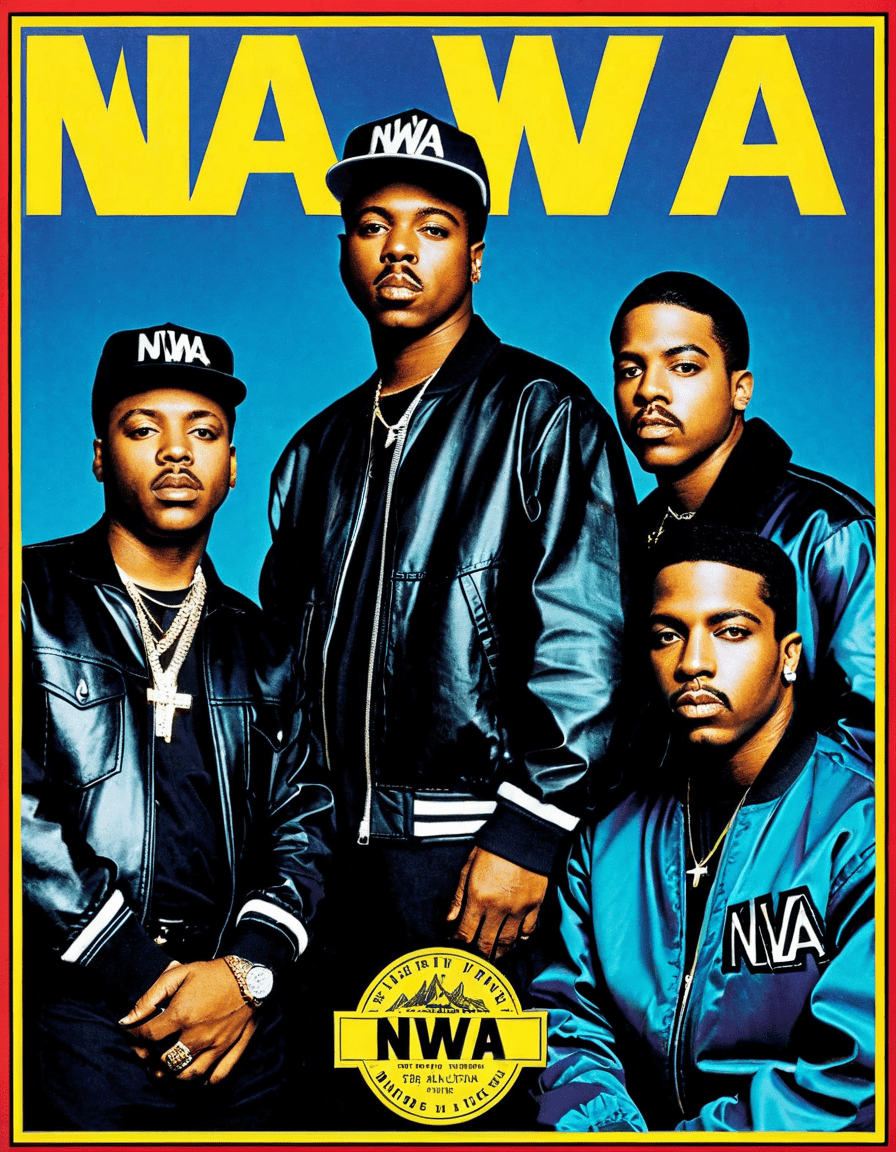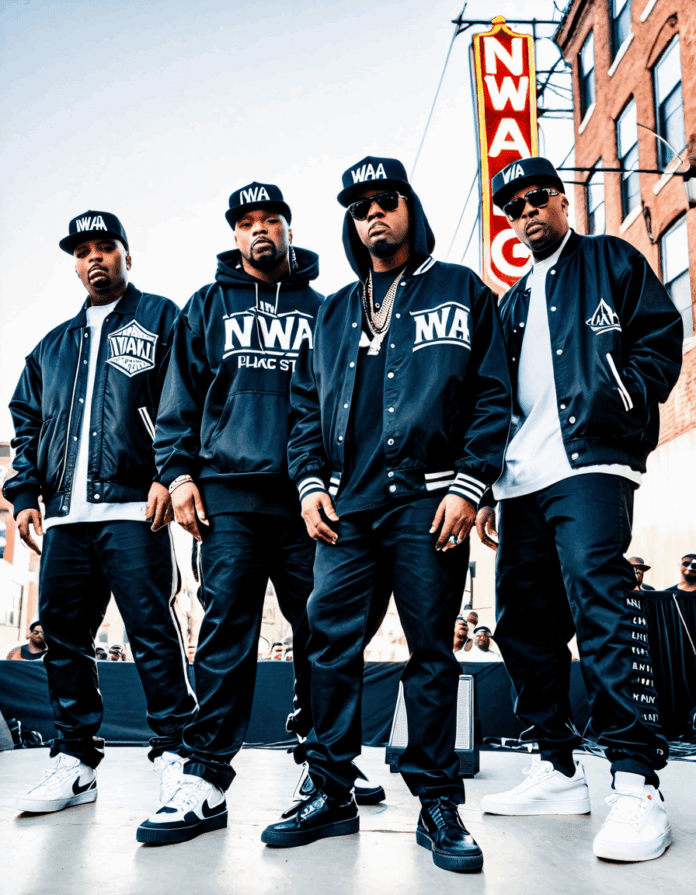N.W.A (Niggaz Wit Attitudes) stirred the pot in a way few could’ve predicted, igniting a cultural revolution that reshaped the landscape of hip-hop. Rising from the streets of South Central Los Angeles in the late 1980s, this iconic group introduced raw narratives that resonated with outsiders and marginalized communities. Even years after their peak, the ground they broke continues to influence the music scene, filmmakers, and society as a whole. So, grab your popcorn and settle in while we dive into how N.W.A changed music and society forever.

## N.W.A: The Groundbreaking Impact of This Iconic Group
N.W.A’s debut album, “Straight Outta Compton,” threw down the gauntlet with an unfiltered look at life in South Central. Their lyrics weren’t just words; they painted a vivid picture of police brutality and systemic racism, making them a voice for youth who felt ignored. With their authenticity, they kicked off a whole new era in music—encouraging artists from various genres to be proud of where they come from. It’s as if they said, “Hey, being real is cool!” and fans listened.
Ever heard of “F*** tha Police”? This iconic track quickly turned into an anthem against police brutality, stirring up a whirlpool of controversy and censorship attempts. N.W.A’s fight for artistic freedom inspired artists like Kendrick Lamar and J. Cole to raise their voices against societal norms. It wasn’t just about music; it was a major turning point for freedom of expression in the arts. Talk about putting your foot down!
The success of N.W.A didn’t just shake things up for themselves; it pushed rivals in the hip-hop scene, like Public Enemy and Ice-T, to step up their game. Suddenly, artists had to dig deeper into social justice themes, enriching the hip-hop narrative. The choice wasn’t just about being cool anymore; it was about engaging with real-world issues. Once you cross that bridge, ain’t no turning back!
N.W.A’s tunes reached beyond just hip-hop and hopped onto stages as part of the broader pop culture. Think of it as the Greyhound bus of music; it connected different communities through shared experiences. Their tracks became a soundtrack not just for the streets but for a global audience. The results? A powerful cultural conduit that linked people together and celebrated connection like never before.
N.W.A played a huge role in the transition of hip-hop from the underground to mainstream. Their potent mix of beats and gritty lyrics wrapped around pop sensibilities, making hip-hop accessible—and profitable! Artists like Dr. Dre, who later launched Beats by Dre, perfectly exemplified this shift. Suddenly, street stories weren’t just for the block—they were big business, too.
Talk about style! N.W.A’s image became iconic and had a significant impact on fashion trends. From their “coco” logo to those ever-persistent Raiders caps, they were the ultimate rebels. Their fashion choices created a narrative of identity that influenced youth culture—and streetwear—far beyond the music scene. Who would’ve thought a cap and some swagger could change the world?
N.W.A embraced their status as outsiders, and in doing so, they redefined what it meant to be an artist. By concentrating on the lives of outsiders, they opened doors for marginalized voices in music making. This paved the way for artists like Bad Bunny in Latin music and Childish Gambino in alternative R&B whom we see today expressing their truths. No longer inhabitants of the fringes, outsiders had a front-row seat to the spotlight.

Lasting Legacy and Impact on Future Generations
The impact of N.W.A stretches far beyond just music; it has significantly reshaped perceptions of art, activism, and cultural identity. Their audacity to tackle divisive issues fostered social change and motivated a generation of artists to carry the torch. Today’s entertainment landscape thrives on the principles N.W.A established—courage, authenticity, and resilience.
From provocative lyrics to a distinct visual style, N.W.A’s influence seeps into various aspects of culture today. The groundwork they laid enables current and future artists to engage in urgent dialogues surrounding social justice issues. They’re not just a relic of the past; their relevance continues to flourish in a rapidly shifting cultural climate. Their journey is a testament to how music can inspire movements, elevate voices, and rewrite societal narratives.
So, the next time you jam to a hip-hop track, remember the trailblazers who came before. N.W.A’s pioneering spirit lives on, making waves and setting the stage for artists who dare to be true to themselves while challenging the status quo. Now that’s something to raise a glass to—or maybe just throw your hands up and shout!
As we reflect on their timeless contributions, we realize one thing’s for sure: N.W.A didn’t just change music; they disrupted norms, sparked conversations, and left an indelible mark on culture that will resonate for generations to come.
nwa: The Groundbreaking Impact of This Iconic Group
The Origins of nwa’s Sound
Ever wonder how nwa revolutionized hip-hop? Formed in 1987, this group didn’t just create music; they sparked a cultural movement. Their debut album, “Straight Outta Compton,” laid the groundwork for gangsta rap, tackling issues like police brutality and racial inequality. The raw voice of nwa resonated with many, bringing to light real-life struggles that had been silenced. Interestingly, their bold lyrics and unmistakable sound are akin to the audacious themes we see in films like Stray, which explore societal themes through an unforgettable lens.
Fun Facts About the Crew
Did you know that nwa was originally a five-member group? The iconic lineup featured Eazy-E, Ice Cube, Dr. Dre, MC Ren, and DJ Yella. Each member played a crucial role in shaping their unique sound. What’s more, during their peak, the guys took the stage in signature looks – think oversized graphic tees and those legendary Members only jackets. It’s practically a cultural fashion statement that echoes the nostalgia found in retro flicks, much like the vibes from Gare de Lyon, capturing styles that define eras.
The Legacy Lives On
Fast forward to today, nwa’s influence is undeniable. The group has been credited with inspiring a myriad of artists across genres, including rock and pop. Their storytelling isn’t just confined to music. You can see parallels in contemporary works like Sherlock, where complex narratives explore similar themes of justice and social commentary. The gritty authenticity of nwa’s work remains a benchmark for artists who aim to speak the truth, just as Abyss invites viewers to delve into darker human experiences. Reflecting on this legacy reminds us of the importance of artistic expression in addressing societal challenges while keeping us entertained.
In summary, nwa’s impact stretches far beyond their albums. Their groundbreaking approach to music, paired with their cultural commentary, has left an indelible mark that continues to resonate in today’s artistic landscape. So next time you delve into their tracks, remember the rich narrative threads that connect them to a broader cultural dialogue, a journey that artists like Spider and influencers at events like Mcexperiencia continue to embrace and evolve.




